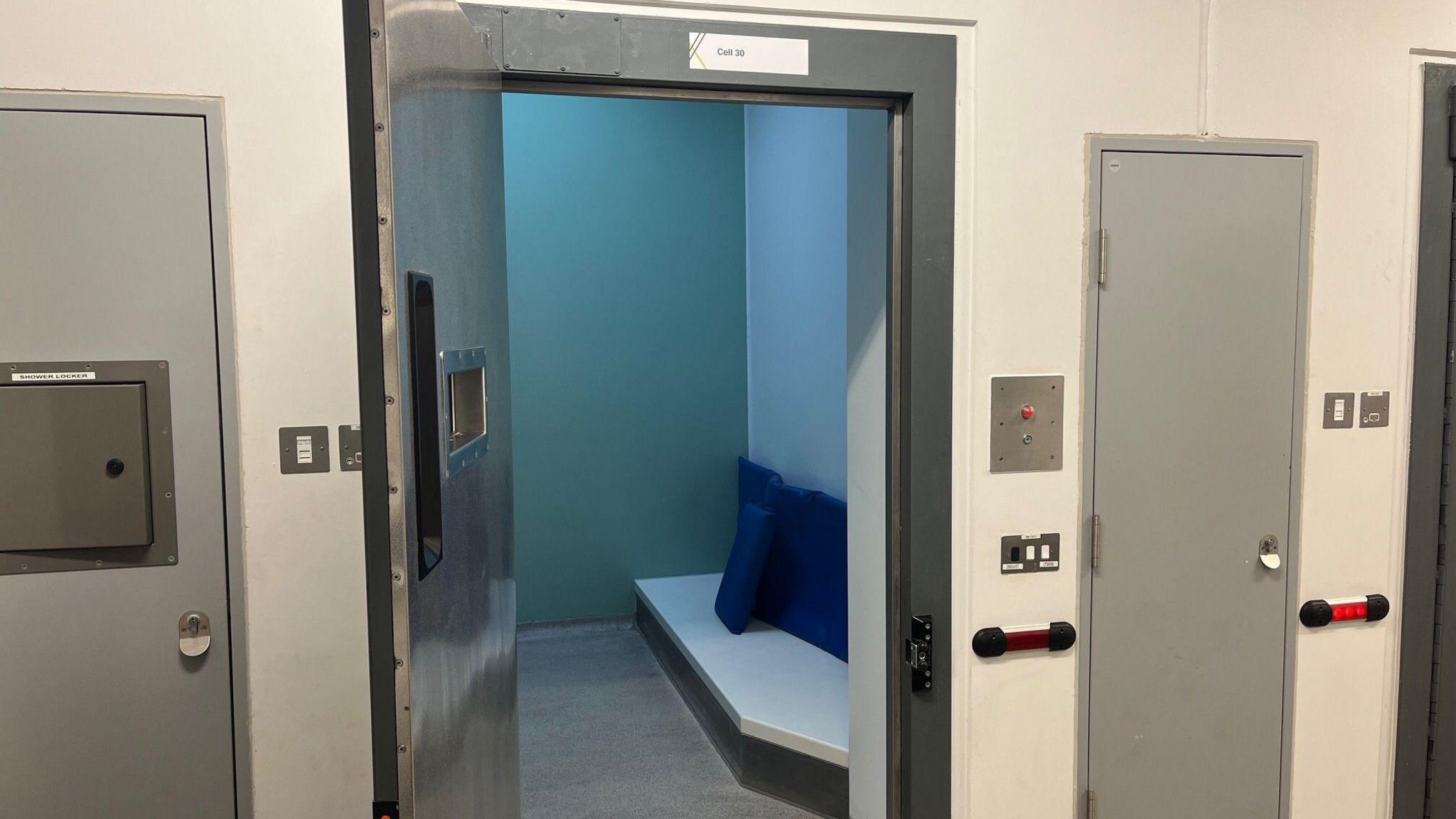'Too many children kept in custody overnight'

Avon and Somerset Police has been told it must improve a number of areas around the risk to detainees
- Published
"Too many" children are currently being kept in custody by Avon and Somerset Police, an inspection has concluded.
The Care Quality Commission found some inmates had been left naked in cells due to officers failing to check on them, and other worrying cases where incapacitant spray had been used.
Inspectors visited custody suites in Bridgwater, Keynsham and Patchway in January.
They concluded the force "needs to improve how it manages risk in custody to keep detainees safe".
"We found limitations to how the force identifies and manages risk," the report, co-published by His Majesty’s Inspectorate of Constabulary and Fire and Rescue Service, stated.
"Custody officers don’t record risk assessments in enough detail. They don’t regularly review care plans and adjust risk levels in response to changes in detainees’ circumstances," it continued.
Inspectors said the force has "a strong commitment to keeping children out of custody".
"However, too many children who are charged and refused bail are detained in custody overnight instead of being moved to secure or other appropriate alternative accommodation," the report stated.
"In the year up to our inspection, the force made 42 requests for local authority accommodation, but only one child was moved. The force doesn’t record whether a request has been made in all cases, so can’t monitor this effectively."
The report also found the force's use of PAVA incapacitant spray was higher than other areas.
"However, when it is used, custody personnel provide good aftercare for detainees," the report noted.
"We saw examples of custody officers and detention officers making detailed records of use of force incidents on the custody record. This included the rationale for their individual decisions."
Too many children were being detained rather than being moved to other accommodation
There were also issues around clothing offered to people.
"We found cases where clothing was removed from detainees at risk of self-harm, and they were left with a mix of anti-rip clothing and either their own clothing or other replacement clothing," the report said.
"Some detainees then attempted to use this clothing to harm themselves, which resulted in further force being used to remove it from them."
In some cases, this had resulted in detainees remaining naked in cells, especially when intoxicated.
Detention officers did not always record cell visits in sufficient detail and copied and pasted words from one visit to the next, the report found.
The force’s data showed that in the past 12 months custody officers had recorded the ethnicity of 1,470 detainees (7.96%) as unknown, which limits the force’s ability to establish fair and equal outcomes for detainees.
Lengthy delays
Inspectors praised the force for working "well with mental health services to improve the support for people with mental health conditions".
"We saw good evidence of people being diverted from custody where appropriate," the report stated.
"However, the force told us that there can be lengthy delays when moving detainees who require a mental health assessment while they are in custody. This is a poor outcome for these detainees."
The general cleanliness of all suites and a "good range of reading material" was also praised by inspectors.
Though insufficient staffing levels to "meet demand and operate safely" was flagged as an issue to the force.
Assistant Chief Constable Joanne Hall said in 2023 the force made almost 20,000 arrests.
“We recognise the increased vulnerability children have and across the organisation we seek to avoid criminalising juveniles where appropriate," she said.
"It is important we seek to minimise the time they spend within custody, such as prioritising them during the booking in process where possible.
“There can sometimes be challenges in securing alternative accommodation for children who are not granted bail, but we continue to work closely with partner agencies to resolve these on a case by case basis."
The report noted good work by custody personnel in the following areas:
Showing a caring attitude and detainees giving positive responses about the care they had received in custody.
Keeping custody centres well-maintained and clean.
Being patient with violent and volatile detainees in attempts to de-escalate situations, using effective communication and negotiation.
"Good evidence" of diverting prisoners with mental health illness away from custody where appropriate.
Comprehensive training in line with College of Policing standards.
A commitment to transparency and good relationships with independent custody visitors.
Offering a good range of reading material and stress aids for detainees.
Related Topics
- Published30 April
- Published6 February